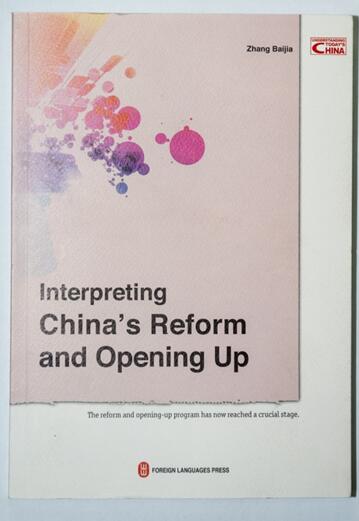Understand China's future through its reform history
 0 Comment(s)
0 Comment(s) Print
Print E-mail China.org.cn, June 29, 2016
E-mail China.org.cn, June 29, 2016
China's reform and opening-up, which started more than 30 years ago, has changed the face of China and put the old civilization on a path of rapid development. This part of China's history is important for those who wish to understand China, and moreover, it represents a means to foresee China's future.
 |
The book, "Interpreting China's Reform and Opening Up," offers a concise introduction to the causes and effects of China's reform and opening up, especially regarding why China embarked on the reform and opening up policy in the late 1970s, and how it related to the country's previous history.
The author Zhang Baijia is researcher and deputy director of the Party History Research Center of the Central Committee of the Communist Party of China (CPC). He is also a professor at the prestigious Peking University and Renmin University of China, and a member of the Academic Committee of the Institute of Modern History at the Chinese Academy of Social Sciences (CASS).
Zhang has previously researched the history of the CPC, as well as China's modern history and diplomatic history. Now, his focus is on the history of reform and opening-up. His previous works include "Discussion on the Chongqing Negotiation," "The Cold War and China," and "30 Years of China's Reform and Opening Up."
Zhang's academic background, experiences and current research has made him capable of interpreting why and how the CPC and the Chinese people chose to embark on the road of reform and opening up while sticking to socialism with Chinese characteristics.
While China's reform and opening-up has now reached a crucial stage, a better understanding of China from this perspective will be helpful to those who wish to know more about the Chinese dream and how China will make further contributions to world peace and development.
The book, published by Foreign Language Press (FLP), is available in both Chinese and English.






Go to Forum >>0 Comment(s)